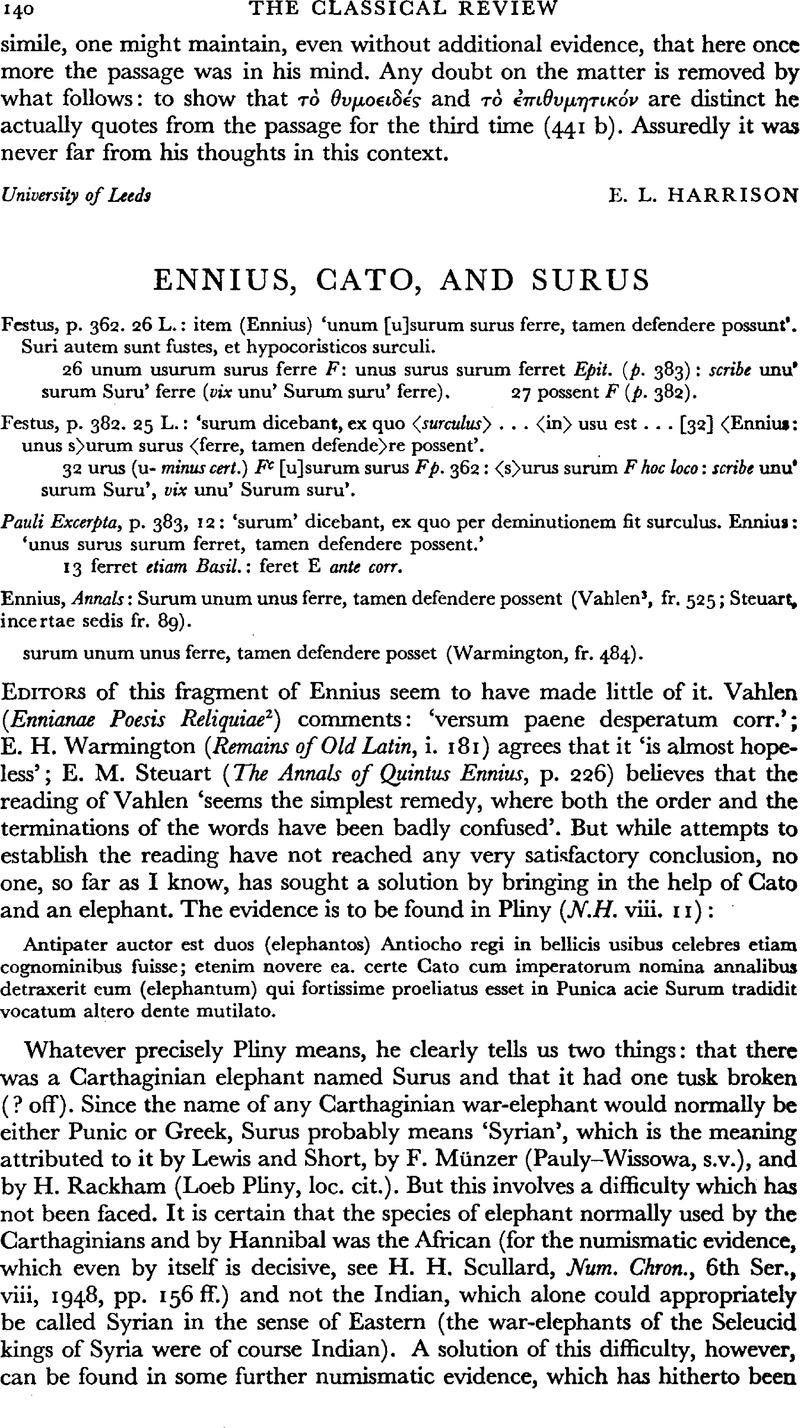Published online by Cambridge University Press: 13 February 2009

page 141 note 1 It is possible, in view of the extreme rarity of Indian elephants in Hannibal's forces, that we have a portrait of Surus on the coinage (see Num. Chron. 1950, pl. xvi, a, b, c).
page 141 note 2 Cf. e.g. aries, coruus, cuniculus, musculus, mager, testudo (on triarii see Walbank, F. W., C.R. lxiv. 10 f.)Google Scholar. See further McCartney, E.S., i Figurative Uses of Animal Names in Latin and their Application to Military Devices (Dissert. Pennsylvannia, 1912)Google Scholar; Heraeus, W., ‘Die römische Soldatensprache’ (Archiv. für lat. Lexikogr. xii, 1902, pp. 155 ff.Google Scholar, and Nachträge, in Kleine Schriften (1937), pp. 151 ff.)Google Scholar.
page 141 note 3 Festus, p. 362. 19 ff. L.: ‘Rigido … Ennius iocatus videtur … li est enim a manis no- … re usus est. Et lib. II : ‘… i caerula prata’, cacl- … et alibi: ‘Inde parum … ulabant’, Parum insulam refert. Item: ‘Unum (u) surum surus ferre, tamen defendere possunt”.’ The pun could of course have been Ennius’ own, but I think that it is much more likely to have arisen in the ranks of the Roman army, as suggested above, and to have been taken over by Ennius.
page 142 note 1 Rhein. Museum, lxxix (1930), p. 271Google Scholar = Klein. Schr., p. 251. Cf. Skutsch, O., C.Q. xlii (1948), p. 98Google Scholar, to whose kindness I owe this reference.
page 142 note 2 On the other hand, Ernout and Meillet, Dict. Etym.3 (1951), s.v. surus give ū?, while A. Walde, Lat. Etym. Wörterb., says: ‘ǔ, nicht ǔ. vgl. Stowasser Comm. Wölfflin 25 ff.’
page 142 note 3 It has not been certain whether Surus fought in the First or Second Punic War though the latter seemed the more probable (cf. Scullard, op. cit., 1950, p. 283, n. 43). If the Ennius fragment is relevant, and if, as is almost certain, Ennius did not record the First in any detail (on this problem see O. Skutsch, C.Q. xlii. 96 ff.), then it must have been in the Second. N. J. De Witt has advanced the suggestion (Class. Phil. 1941, pp. 189—90) that a reference to Surus, the elephant, may be found in Plautus, Pseudolus 1218 ff. Finally, I should like to record my gratitude to Professors W. S. Maguiness and L. R. Palmer for having discussed some points with me.